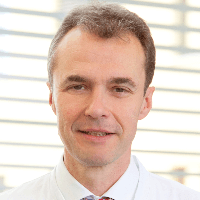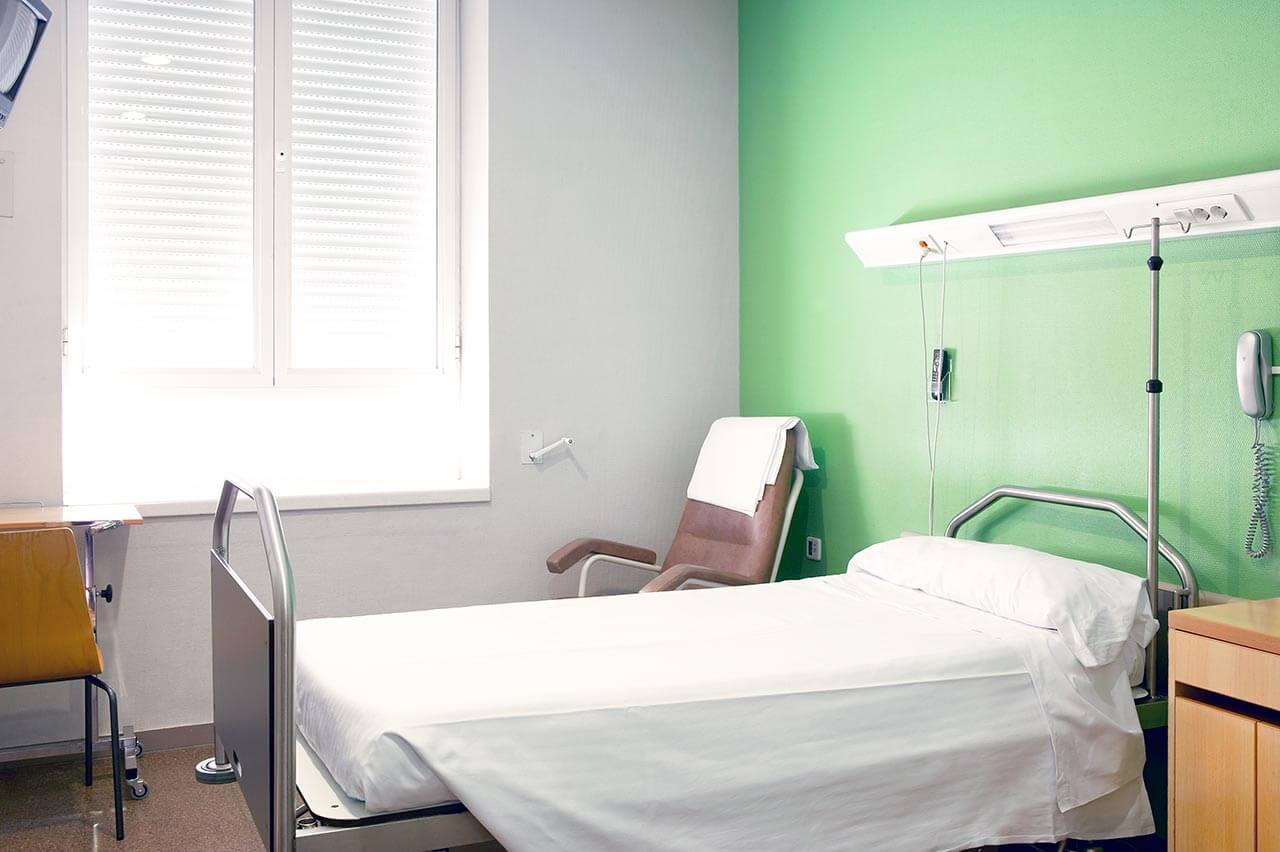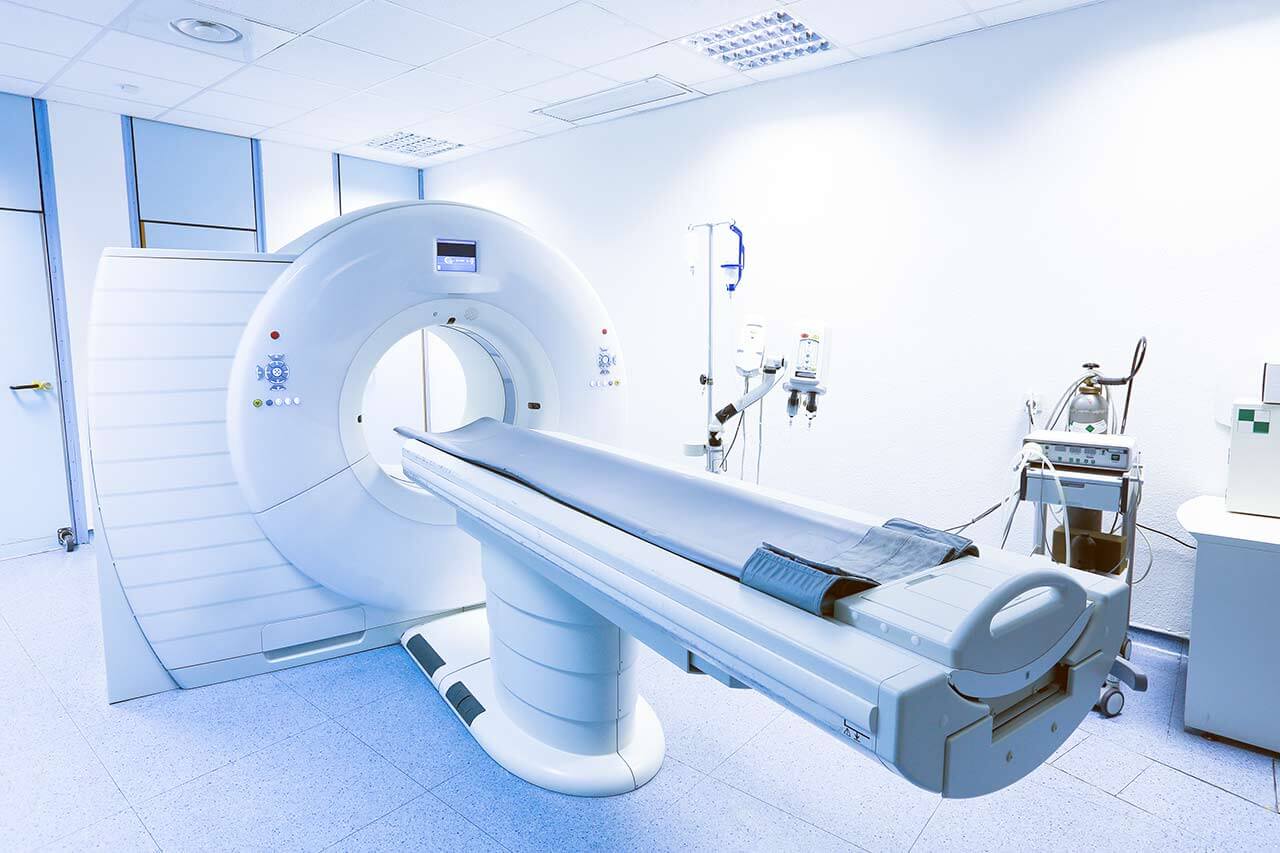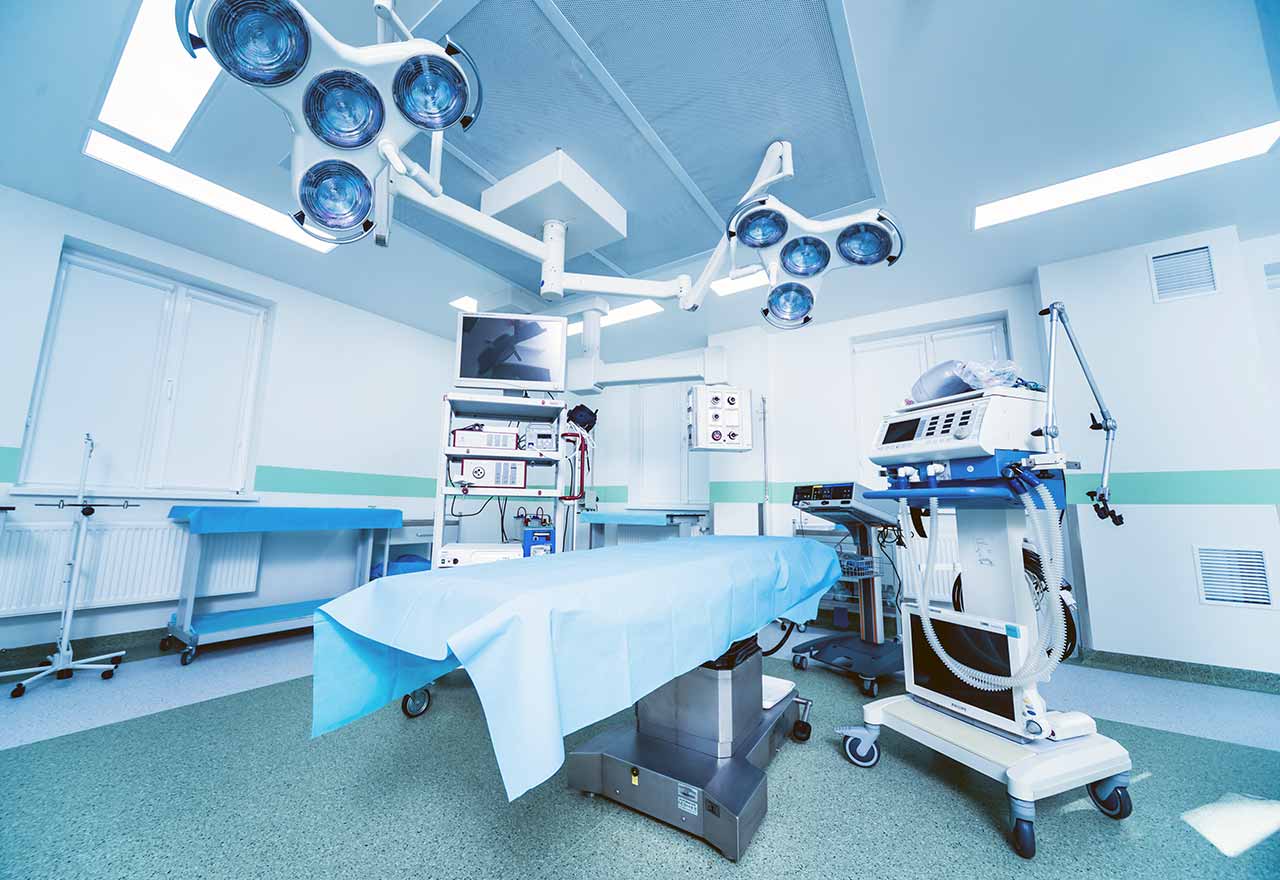
The program includes:
- Initial presentation in the clinic
- clinical history taking
- review of medical records
- physical examination
- laboratory tests:
- complete blood count
- general urine analysis
- biochemical analysis of blood
- TSH-basal, fT3, fT4
- tumor markers
- inflammation indicators (CRP, ESR)
- indicators of blood coagulation
- abdominal ultrasound scan
- CT scan/MRI or PET-CT of abdomen
- preoperative care
- cytoreductive surgery to remove visible tumors
inside the abdomen and HIPEC - histological and immunohistochemical
examination of removed tissues - symptomatic treatment
- cost of essential medicines
- nursing services
- stay in the hospital with a full board
- accommodation in a 2-bedroom ward
- elaboration of further recommendations
How program is carried out
During the first visit, the physician will conduct a clinical examination and go through the results of the available diagnostic tests. After that, you will undergo the necessary additional examination, such as the assessment of liver and kidney function, ultrasound scan and tomography of the abdominal organs. Based on the results of the examination, the physician will choose the surgical technique and the type of anesthesia. After that, preparation according to the preoperative standard will start.
Cytoreductive surgery begins with general anesthesia. The intervention is performed as open surgery, i.e. through the incision in the anterior abdominal wall, so that the surgeon can carefully examine the peritoneum and the surface of the abdominal organs. The surgeon removes affected by the malignant process ovaries, areas of the peritoneum and metastases in other internal organs. This stage of the operation can take several hours, since the overall effectiveness of the treatment depends on the completeness of the malignant tissues removal.
At the next stage of the operation, the surgeon inserts several catheters into the abdominal cavity. Through the catheters, a heated solution of a chemotherapy drug is pumped inside. The special system maintains the required temperature (42-43 degrees Celsius), pressure and circulation rate of the medicinal solution. The solution mechanically flushes out blood clots and remnants of malignant tissues, and a heated chemotherapy drug destroys micrometastases in internal organs and lymph nodes (micrometastases can’t be detected by the naked eye).
After 1-1.5 hours, the chemotherapy drug is removed from the abdominal cavity and the abdominal cavity is washed with saline. After that, the surgeon removes the catheters and sutures the incision of the anterior abdominal wall.
After the completion of the operation, you will be transferred to the ward of the intensive care unit, under the round-the-clock supervision of doctors and nurses. In 1-3 days after the operation, your drains will be removed and you will be transferred to a regular ward for further recovery. The whole treatment takes 10-12 days on average.
Finally, the attending physician will evaluate the results of control examinations, schedule the date of discharge from the hospital and give you detailed recommendations for further follow-up and treatment.
Required documents
- Medical records
- MRI/CT scan (not older than 3 months)
- Biopsy results (if available)
Service
You may also book:
 BookingHealth Price from:
BookingHealth Price from:
About the department
The Department of Gynecology, Mammology and Obstetrics at the HELIOS Clinic Krefeld offers the full range of services in these medical focuses. The department specializes in the diagnostics and treatment of benign and malignant gynecological diseases, breast cancer, endometriosis, uterine myomas, urinary incontinence. In the field of obstetrics, comprehensive medical care is provided before, during and after pregnancy. The medical team has extensive experience and expertise in the management of high-risk pregnancies and the care of preterm neonates. The department is headed by Prof. Dr. med. Michael Friedrich.
In the field of gynecology, of particular interest is the treatment of malignant oncological diseases. The high quality of treatment of oncological diseases is evidenced by the certification of the department by the German Cancer Society. Here is provided a high-precision diagnostics of such women's oncological diseases as ovarian, uterine, cervical, vulvar cancers, etc. Each clinical case is discussed at an interdisciplinary tumor board, during which an individual treatment plan is developed. In addition to surgical treatment, there are many possibilities of drug therapy (infusion, injections, tablets), for example, chemotherapy, antibody therapy, antihormonal therapy, bisphosphonate administration, etc. The full recovery often requires a simultaneous use of several types of therapy. It should be noted that all medical measures are carried out in accordance with the high standards of professional medical societies. There is an opportunity to take part in clinical trials.
The spectrum of the department’s services in the field of gynecology is complemented by the diagnostics and treatment of endometriosis, urinary incontinence, uterine myomas. To treat all these pathologies, both conservative and surgical methods are used. The choice of therapy is determined by the individual clinical situation, patient’s general health.
In the field of mammology, precise diagnostics and complex treatment of both benign and malignant diseases of the breast are offered. Since breast cancer is one of the most common pathologies among women, the specialists of the department pay great attention to this disease. The department has the state-of-the-art diagnostic equipment for providing mammography, ultrasound (also 3D ultrasound) and biopsy. When performing surgical treatment, preference is given to organ-preserving operations. If the disease is at a progressive stage and it is impossible to preserve breast, reconstructive surgery is performed. After surgical treatment of breast cancer, radiation therapy is mandatory. There may be additionally prescribed chemotherapy, hormone therapy and antibody therapy. Also, the medical team of the department specializes in aesthetic plastic surgery of the mammary glands: breast augmentation, reduction, breast lift, correction of breast defects, treatment of gynecomastia in men.
A separate focus of the department is obstetrics. Every year, more than 1,800 babies are born here. The main goal of the medical team is quality, safe medical care based on an individual approach. The department was awarded the title of the Level I Perinatal Center with a particular specialization in the field of care for premature infants.
A specialized team of doctors and nurses takes care of the health of premature babies and children who need either intensive care or emergency surgical treatment. The department uses the latest methods for taking care of premature babies and newborns.
The department has at its disposal 4 cutting-edge delivery rooms and two rooms for expectant mothers in labor. Each delivery room is equipped with a comfortable bed for childbirth. In addition, there are special baths for childbirth, maternity stools, ropes and birth mats. The design of each delivery room is made in the style of four elements of the earth: fire, earth, water and air.
The range of medical services of the department includes:
Gynecology
- Oncological diseases (uterine, cervical, ovarian, vulvar cancer)
- Surgical treatment
- Chemotherapy
- Radiation therapy
- Hormonal therapy
- Antibody therapy
- Other treatments
- Urinary incontinence
- Drug therapy
- Surgical treatment (minimally invasive interventions, surgical reconstruction of the pelvic floor, surgical correction of the uterine prolapse, etc.)
- Endometriosis
- Drug therapy
- Surgical treatment (laparoscopy with subsequent tissue collection and histological examination)
- Pain therapy
- Hormonal therapy
- Other treatments
- Uterine fibroids
- Uterine artery embolization (under local anesthesia)
- Hysteroscopy
- Laparoscopy (sparing surgery to remove fibroids)
- Open intervention (similar to caesarean section)
- Other treatments
Mammology
- Conservative treatment of breast cancer
- Chemotherapy
- Radiation therapy
- Hormonal therapy
- Antibody therapy
- Other treatments
- Surgical treatment of breast cancer
- Sentinel lymph node biopsy
- Organ-preserving operations on the mammary gland
- Surgical interventions for breast reconstruction (using implants or patient’s own tissues)
- Other surgical interventions
- Aesthetic plastic surgery of the mammary glands
- Correction surgery for benign breast diseases
- Correction of breast defects (for example, tubular breast)
- Breast augmentation
- Breast reduction
- Breast lift
- Gynecomastia in men
- Other treatments
Obstetrics
- Competent care before, during and after childbirth
- Management of a high-risk pregnancy
- Pain therapy during labor
- Endogenous endorphin
- Classical painkillers
- Happy gas (nitrous oxide)
- Epidural anesthesia
- Use of warm water
- Homeopathic medicines
- Acupuncture
- Aromatherapy with essential oils
- Cesarean section
- Childbirth in the water
- Care for newborns (screening, hearing tests, screening for congenital heart defects, ultrasound examinations, etc.)
- Care of premature neonates
- Other obstetrical services
Curriculum vitae
- 1985 - 1991 Study of Medicine at the Faculty of Medicine of the Albert-Ludwigs-University Freiburg.
- 1988 I State examination.
- 1989 II State examination.
- 1991 III State examination.
- 1993 License to practice medicine.
- 12/1991 - 07/1993 Intern at the Department of Gynecology, Diakonissenkrankenhaus Karlsruhe (Senior Physician: Prof. Dr. med. C. Grumbrecht).
- 07/1993 - 04/1994 Assistant Physician at the St. Elisabeth-Klinik Heidelberg (Chief Physician: Dr. med. D. Schenk).
- 09/1993 - 04/1994 Guest Physician at the Department of Radiology in the field of the gynecology, Department of Gynecological Radiology, University Hospital Heidelberg (Chief Physician: Prof. Dr. med. D. von Fournier).
- 01 May 1994 Assistant Physician, Department of Gynecology, University Hospital Homburg-Saar.
- 12 May 1997 Acknowledgement as a Doctor for Obstetrics and Gynecology.
- 01 October 1999 Attending Physician, Department of Gynecology, University Hospital Homburg-Saar.
- 01 October 1997 Head of the Department of Urogynecology.
- 01 May 1998 Head of the Morphological and Cytological Laboratory (together with the Attending Physician PD Dr. med. D. Mink).
- Since 01 October 2000 Attending Physician of the Department of Surgery.
- 20 November 2000 Habilitation for Obstetrics and Gynecology.
- 2001 Substantial participation in the organization and setting up of the Breast Centre Homburg-Saar, establishing the Mammotome and an interdisciplinary tumour conference as well as programming and organization of respective postgraduate medical education.
- 09 February 2001 Venia Legendi (Private Lecturer) for Obstetrics and Gynecology.
- 01 October 2002 Head Consultant at the Department of Obstetrics and Gynecology, University Hospital Tübingen.
- 01 March 2003 Head Consultant at the Department of Obstetrics and Gynecology, University Hospital Lübeck.
- 09 September 2003 3rd place of the ranking list for the call for C3 professorship.
- Since March 2003 Member of the Drug Commission and DRG-Delegate at the Department of Obstetrics and Gynecology, University Hospital Lübeck.
- March - April 2004 Temporary Position as Head of Department of Obstetrics and Gynecology, AK Segeberger Kliniken GmbH.
- 19 October 2004 Habilitation for Obstetrics and Gynaecology at the University Hospital Lübeck.
- 05 July 2005 Extraordinary Professorship for Obstetrics and Gynecology at the University Hospital Lübeck.
Membership in Professional Societies
- German Society of Ultrasound (DEGUM).
- Society of Cervical Pathology and Colposcopy, Section of the DGGG.
- Membership of the International Academy of Cytology (MIAC).
- European Association of Gynecologic Oncologists (EAGO).
- German Society of Cancer (DKG).
- European Society of Gynecologic Oncology (ESGO).
- German Society of Mastology (DGS).
- International Gynecologic Cancer Society (IGCS).
- German Society of Obstetrics and Gynecology (DGGG).
- Membership of the Section of Gynaecologic Oncology (AGO).
- European Society for Medical Oncology (ESMO).
- American Society of Oncology (ASCO).
- European Society of Mastology (EUSOMA).
- Society of Reconstructive Surgery in Gynecology (AWO-Gyn).
- German Society of Gynecologic Endoscopy (AGE).
- European Society of Gynecological Endoscopy (ESGE).
- International Society of Gynecological Endoscopy (ISGE).
Photo of the doctor: (c) Helios Klinikum Krefeld
About hospital
Founded in 2014, the HELIOS Clinic Krefeld is one of the most modern medical facilities in Germany today. A team of highly qualified specialists, innovative medical equipment and comfortable accommodation conditions – the clinic has everything to make the treatment run smoothly and efficiently. Having crossed the threshold of the clinic, you will feel the home-like cozy and modern atmosphere. Perhaps you will even forget that you are in the clinic.
As a maximum care medical center, the clinic covers practically all areas of medicine: cardiology, gastroenterology, oncology and hepatology, nephrology, diabetology and rheumatology, general, abdominal and minimally invasive surgery, dermatology and venereology, angiology, cardiac surgery and other medical fields.
Thanks to a continuous fruitful cooperation with the world’s leading universities, research and medical centers, the clinic provides the highest treatment standards.
The doctors of the clinic take up the treatment of the most severe cases, including serious spinal injuries and diseases related to the disorders of the central nervous system. The nursing staff of the clinic regularly undergoes both advanced and special trainings, which contributes to a high-quality, professional patient care at all stages of treatment.
The clinic adheres to a strict quality management system. Not only the patient care, but also the entire treatment process (including monitoring and patient care after the operation) are subject to the quality certification.
Photo: (c) depositphotos
Accommodation in hospital
Patients rooms
The patients of the HELIOS Clinic Krefeld live in comfortable single and double rooms. Each room has a bathroom with a toilet and shower. The room is furnished with a comfortable bed, bedside table, TV, radio and telephone. Each room has access to the Internet, which can be used at extra charge.
The clinic offers an excellent infrastructure: a beautiful park with playgrounds for children, a cafeteria, a chapel, which regularly hosts church services, a prayer room for Muslims, a beauty salon, a shop with a large selection of magazines, drinks and personal hygiene items, an ATM and a large parking lot.
Meals and Menus
The restaurant of the clinic offers three meals a day. For breakfast, lunch and dinner, it serves a large selection of dishes that will please even spoiled gourmets. Every day, the menu features vegetarian and dietary dishes. It is possible to order any dish without leaving the room. In addition, the clinic has a cafeteria where one can always have a cup of aromatic coffee, hot tea or enjoy an exquisite refreshing drink. Also, the cafeteria menu offers many tasty snacks and dishes.
Further details
Standard rooms include:




